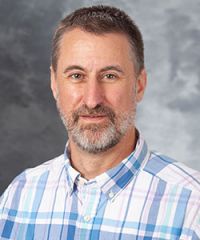 Randy Brown, MD, PhD, DFASAM
Randy Brown, MD, PhD, DFASAM
Program Director
Dr. Brown’s primary interests revolve around the treatment and prevention of substance use disorders and related conditions in settings outside of the specialist treatment environment (such as primary care, hospitals, pharmacies, and criminal justice settings). He enjoys patient care, teaching, and conducting research in these areas. He is Board Certified in Family Medicine and in Addiction Medicine.
After family medicine residency, Dr. Brown was a faculty member for the Stanislaus County Family Practice Residency in Modesto, CA where he was also Medical Director of Stanislaus County’s Opioid Treatment Program. Dr. Brown came to Madison in 2001 to participate in the NIH/NRSA Primary Care Research Fellowship, with focus on addiction health services research. He attained a PhD in UW’s Dept of Population Health Sciences in 2009. His current research includes investigations in opioid misuse screening and prevention, mobile technology to support recovery, promotion of medication prescribing for alcohol use and opioid use disorders in primary care, early liver transplant in the setting of alcohol related liver disease, and potential therapeutic applications of psilocybin and MDMA.
He serves as a consulting physician in addiction medicine at UW Hospital (where he is the Director of the Center for Addictive Disorders), the UW HIV/AIDS Comprehensive Care Center, and at the UW Multi-Disciplinary Clinic for Alcohol-Related Liver Disease. He has been a certified prescriber of buprenorphine as adjunctive treatment for opioid dependence since 2001. Dr. Brown is also the Founding Director of the UW Addiction Medicine Fellowship Program, the Director of the Madison VA Interprofessional Advanced Fellowship in Addiction Treatment. He is a Director of the American Board of Addiction Medicine and the American College of Academic Addiction Medicine.
Outside of work, Dr. Brown enjoys running (especially with his Vizsla, Ary), cooking for family and friends (particularly grilling), supporting his kids in their activities (son’s track/cross country, daughter’s horse-showing), fishing/hunting, and reading a good novel.
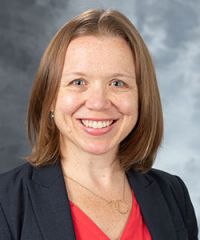 Kelly Eagen, MD
Kelly Eagen, MD
Associate Program Director
Dr. Kellene (Kelly) Eagen is an Assistant Professor in the Addiction Medicine program at University of Wisconsin and Associate Program Director of the Addiction Medicine Fellowship. Her appointment includes clinical responsibilities that focus on patient care and teaching Addiction Medicine fellows, residents, medical students, and other learners. She provides care on the UW Hospital Consult Service, as well as at the Access Wingra Clinic and the UW HIV Clinic. In addition to her clinical work, she has academic, educational, and research responsibilities that relate to Addiction Medicine including directing the Family Medicine and medical student electives in Addiction Medicine.
Dr. Eagen has a medical degree from the University of Chicago Pritzker School of Medicine in Chicago, Illinois. After completing her education, she completed the University of California San Francisco Family and Community Medicine Residency at Zuckerberg San Francisco General Hospital. She also completed a fellowship in the California Healthcare Foundation Leadership Program. Before coming to the Department of Family Medicine and Community Health, Dr. Eagen worked for the San Francisco Department of Public Health as the Medical Director of the San Francisco Medical Respite and Sobering Center and Medical Director of Permanent Supportive Housing Nursing Services, as well working as a primary care provider for adults experiencing homelessness at the Tom Waddell Urban Health Clinic. In San Francisco she retained an appointment with the University of California San Francisco serving as attending physician for the Family Medicine Inpatient Service at Zuckerberg San Francisco General and as community preceptor for medical students in the outpatient setting.
Dr. Eagen’s specific professional interests include addiction medicine and treatment of substance use disorders, caring for adults experiencing homelessness and living in permanent supportive housing, and providing HIV and Hepatitis C treatment. She is a co-founder of End Hep C SF, a collective impact initiative in San Francisco aimed to eliminate HCV as a public health threat, and she championed the expansion of primary care-based HCV treatment throughout the SF DPH.
In her free time, Dr. Eagen enjoys taking advantage of Wisconsin’s four seasons with her husband and three small children, sleeping when she can, and cooking especially for others.
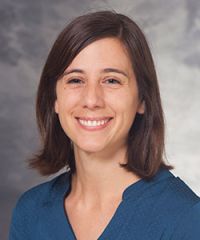 Jillian Landeck, MD
Jillian Landeck, MD
Jillian Landeck, MD, grew up in Sister Bay, WI, a small town on the Door County peninsula. She earned her B.A. in Anthropology and International Development and an M.A. in Physical Anthropology at Tulane University. She has a medical degree from the University of Wisconsin–Madison and completed her residency at United Family Medicine Residency Program in St. Paul, MN. She joined the UW Department of Family Medicine as an Assistant Professor in September 2017. Dr. Landeck’s professional interests include full spectrum family medicine with obstetrical care, global health, and rural health. She is also board certified in addiction medicine and passionate about the care and prevention of substance use disorders in primary care.
Outside of work, Dr. Landeck has two children and enjoys baking, sailing, and gardening.
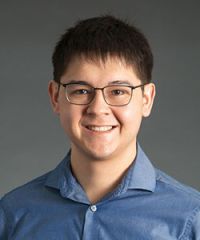 David Leinweber, MD
David Leinweber, MD
Dr. David Leinweber is an Assistant Professor in the Addiction Medicine program at the University of Wisconsin. He primarily serves as a consulting physician in addiction medicine at UW hospital and at the UW Multi-Disciplinary clinic for Alcohol-Related-Liver Disease.
Dr. Leinweber completed his bachelor’s and master’s degrees in biomedical engineering at UW-Madison before earning his medical degree from the University of Wisconsin School of Medicine and Public Health. He then went to complete his residency training at Waukesha Family Medicine Residency Program and his fellowship training in Addiction Medicine from the University of Wisconsin School of Medicine and Public Health. He is Board Certified in family Medicine and Addiction Medicine.
Dr. Leinweber’s research interests are novel treatments for substance use disorders and detection and action of drugs. In his free time, David enjoys mountain biking, road cycling, cross country skiing, and playing chess and board games.
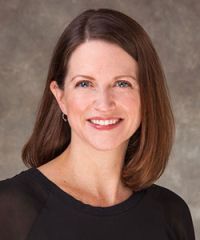 Elizabeth Salisbury-Afshar, MD
Elizabeth Salisbury-Afshar, MD
Dr. Salisbury-Afshar’s work focuses on enhancing the health and wellbeing of people who use substances. Board certified in family medicine, addiction medicine, and preventive medicine/general public health, her expertise lies at the convergence of these disciplines. Her multifaceted contributions span patient care, education, public health practice, and research, with a specific focus on the implementation and evaluation of addiction-related programs.
Prior to her tenure at the University of Wisconsin, Dr. Salisbury-Afshar garnered extensive experience in the public and not-for-profit sectors. Serving as the Medical Director of Behavioral Health Systems Baltimore, she developed and oversaw the Baltimore City Overdose Prevention Plan, the Opioid Fatality Review Board, and the third-party naloxone distribution program. She subsequently served as the Medical Director at Heartland Alliance Health, a federally qualified health center serving people experiencing homelessness and/or living with HIV in Chicago. In this role, she oversaw clinical care delivery across multiple clinics and shelters. Instrumental in the development of medication for opioid use disorder (MOUD) treatment programs, she secured several HRSA grants to fortify these services. Dr. Salisbury-Afshar’s leadership extended to the Chicago Department of Public Health, where, as the Medical Director of Behavioral Health, she crafted and executed the department’s strategy to combat the opioid overdose crisis. Her initiatives included standardizing the analysis and reporting of opioid-related morbidity and mortality, creating provider education learning collaboratives, and expanding naloxone access through funding and educational initiatives. Prior to joining UW, she served as the Director of the Center for Addiction Research and Effective Solutions (CARES) at the American Institutes for Research. Here, she spearheaded various projects, ranging from public health strategy to the development of technical assistance for expanding access to evidence-based addiction treatment.
With over 14 years of clinical experience in federally qualified health centers, providing primary care and addiction medicine treatment, Dr. Salisbury-Afshar currently holds the position of Medical Director of the Compass Program—a low-barrier walk-in clinic for substance-related health concerns. She also works in the hospital on the addiction medicine consult service. As core faculty in the UW Addiction Medicine Fellowship Program, she also holds a joint appointment in the Department of Population Health Sciences, serves as the Program Director of the Preventive Medicine Residency, and acts as the Medical Director of Harm Reduction Services for the Wisconsin Department of Health Services Division of Public Health.
